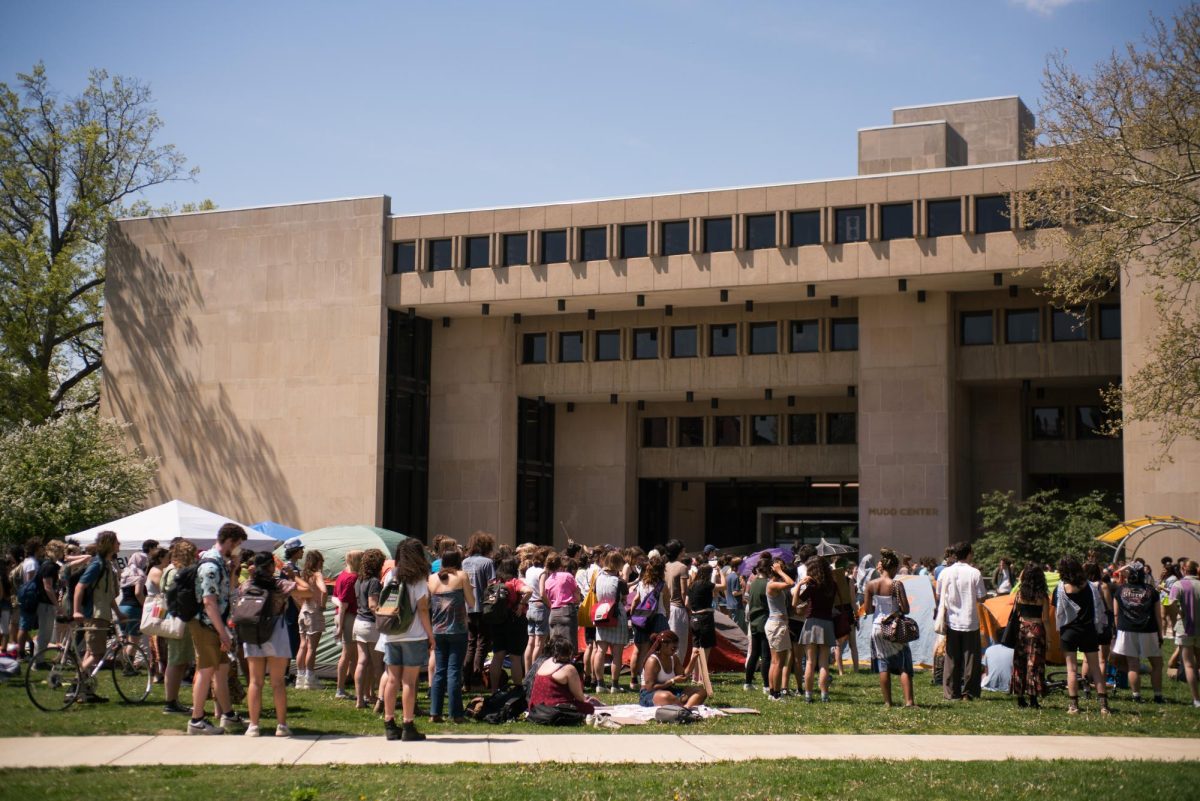Oberlin College’s Winter Term requirements overlook the needs of students who need to work during these weeks to pay for college. It’s no secret that Oberlin, being an elite private college, comes with certain financial expectations of students, with the most transparent of them being a large bill for food, housing, and an education. Obviously, this is not exclusive to Oberlin. College in America is expensive and Oberlin is especially expensive. According to the National Center for Education Statistics, the average cost of private college from 2021–2022, factoring in scholarship and financial aid, is $32,900. On average, Oberlin costs $44,689, according to the College Board. Therefore, Oberlin is most accessible to students with economic advantages, which results in a large part of the student body coming from wealthy families. According to The New York Times, 70 percent of the student body comes from the top 20 percent of United States family income. Only 2 percent of the student body comes from the bottom 20 percent of American household income. As a result, much of the student body does not think twice about the money they can earn during the four weeks between fall and spring semester, when they have the option to do whatever they want. To those unfamiliar with Winter Term, it’s a chunk of about four weeks between semesters in which students are encouraged to study something that interests them, from learning an instrument to participating in research on campus. Winter Term can be completed from anywhere, not just on campus. The Oberlin Winter Term 2024 Handbook, it states that “students must be engaged in project work for 100 hours” and, of course, “project hours may not include paid work.” This rule is a less transparent manifestation of the financial expectations from a private name-brand college.
For many students, these four weeks can arguably be extended to six weeks if you factor in the two weeks of break beforehand. Second-year College student Iravati Deochadha voiced her frustration. “I wish I could do a paid internship because, as someone who is helping to pay for college, it’s really important for me to make some money during the six-week period,” Deochadha said.
If the College revised its policies, the combined six weeks of winter break and Winter Term could be a valuable opprotunityfor students to earn money.It’s also important to note that the end of the spring semester at Oberlin is typically in mid-May, whereas schools without a January term end in mid-April. In other words, students can’t compensate for these weeks by working during the summer.
The Winter Term hours are demanding, but not demanding enough to inhibit having a part-time job prohibit. However, this fact encourages students who need to work to cut into their project hours.
“If a student needs to make money, ultimately the easiest way to make money during Winter Term is to just lie about their Winter Term project and do the job, which is not what Oberlin wants, but will inevitably happen,” second-year College student Paige Brown said.
It’s easier, and more common than you’d think, to work around these rules, but this undermines the entire intention of Winter Term projects. Students who cannot afford not to work during Winter Term end up being robbed of a major part of the Oberlin education. Another aversion tactic involves getting paid under the table by employers. Though dishonest, who does this practice really hurt? The lack of consequences for getting paid under the table speaks to the unnecessary nature of the rule against getting paid.
The Winter Term section of the Oberlin website describes Winter Term as “a time to pursue interests outside of regular course offerings through in-depth learning experiences each January,” and encourages students to do a creative project for at least one of their projects. An argument in defense of the Oberlin no-compensation rule is that, when students are not motivated by money, they can study things that genuinely interest them. While this is true, again, it can only be applied to students who have the privilege to work without pay. Many students, like those who are paying for their own education, do not get to simply decide to not be motivated to make money, as their financial well-being depends on it.
For economically advantaged students, Winter Term can be both a resume builder and a chance to gain professional experience. Students without this economic privilege, though, are not able to fully take advantage of this opportunity. If students want or need to make money during these weeks, there are a significant number of obstacles prohibiting them from doing so. Based on this disparity, Winter Term at Oberlin creates more class divide and disadvantages on top of those that already exist at this very expensive school. To every student I spoke to, the solution was simple: revise the rule that prohibits students from making money during Winter Term. It has the potential to open doors for students of all financial backgrounds.










